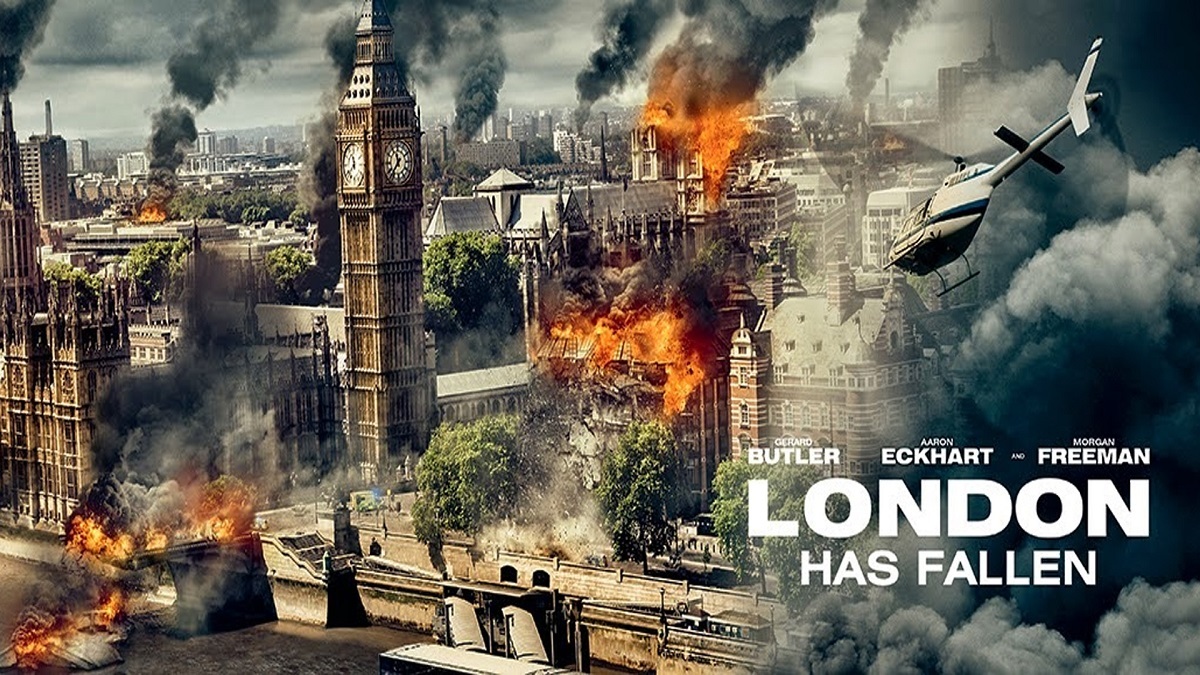
But I’m refusing to go to the cinema to see London Has Fallen. I’m not saying it’s a bad movie. It might be very good. If London has, as the title promises, fallen — then that sounds quite entertaining. I’ve fallen myself and it can be quite painful, especially on the knees.
It is seemingly about the US President visiting our shores and being kidnapped, or lost, or in some fashion misplaced amid exploding buildings. Who wouldn’t want to see a film about an old American chap wandering around in a confused manner amid famous landmarks that are on fire?
But my problem is that the trailer has a line in which a newscaster claims, “London has been decimated”.
No.
London hasn’t been decimated.
Decimated doesn’t mean something has been devastated or ruined or razed to the ground.
Decimation was punishment for an underperforming Roman legion in which one man in 10 was killed by his fellow soldiers. “Decimatus” was the Latin word.
There are further examples throughout history, indeed there is some evidence that a unit of the French army was decimated by its commanding officers for cowardice during World War 1. They drew numbers out of a hat and shot every tenth man. A bit like bingo, but with less attractive prizes.
The word “decimation” is recorded in Britain from the 16th Century when it seems to have been a synonym for “tithing” the practice of the Church claiming a tenth of a person’s income or produce.
In English, then, “decimation” had two meanings: either giving the local vicar some turnips or executing 10% of your soldiers. There is a clear similarity; both involve sacrificing one in 10, although you should only make a stew with one of them.
This is what we should be doing, creating words to describe things that don’t have a name. We are good at creating words, it is one of the English language’s great strengths. We create, borrow and steal words all the time.
However, the opposite has now happened. Decimated is wrongly applied to describe something that already has a description. This is wasteful and pointless.
I suspect some idiot didn’t understand it. He (it’s always a man!) heard “decimation” and thought it was a sexy word. He must have picked up from the context that to be decimated wasn’t a good thing, so assumed it meant to damage.
That person was wrong. But more and more people, with similarly limited vocabularies, copied him.
Now it is in widespread use by people who mean to say destruction, damage or ruin. I’ve even seen a description of a person decimated by a disease.
Before anyone points out: “But the dictionary says…” the dictionary is wrong. Dictionaries are great on how words are spelled; they are unreliable on what a word should mean because they insist on giving definitions based on what the public is actually saying rather than what it should be saying.
Where shall we end up if we accept the errors people make as new meanings? Soon, everything will mean anything and nothing will also mean anything. I am fearful for “barter” because a lot of people seem to think it means “haggle”. And “literally” literally doesn’t mean literally any more. In some people’s mouths it just seems to mean “very”. I can’t tell you how sad this makes me.
I hasten to add, however, I enjoy seeing the language evolve. I’m no stick-in-the-mud. Awful used to mean full of awe; nice used to mean stupid. Meat used to mean any solid food. My grandmother would chant the old Scots grace “We hae meat and we can eat” when sitting down to a plate of cauliflower soup. I’ve seen the word “meat” evolve during my lifetime and find that fascinating.
But there is no good reason to change the meaning of decimated. We already have perfectly adequate words to describe damage. If we accept that decimated no longer means reduce by one in 10, we are left without a word for being reduced by a tenth. English will have become less expressive as a means of communication merely because ignorant people have been copying one another.
Never mind London, the whole language has fallen.
READ MORE
Gerard Butler punches Ross King live on air
The zen guide to wallpaper hanging

Enjoy the convenience of having The Sunday Post delivered as a digital ePaper straight to your smartphone, tablet or computer.
Subscribe for only £5.49 a month and enjoy all the benefits of the printed paper as a digital replica.
Subscribe